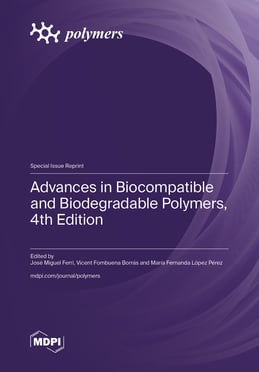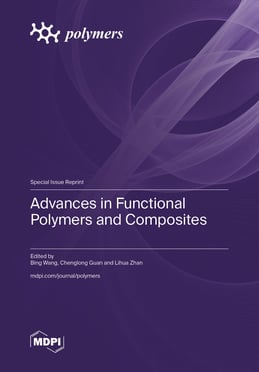- 4.9Impact Factor
- 9.7CiteScore
- 15 daysTime to First Decision
Polymers
Polymers is an international, peer-reviewed, open access journal of polymer science published semimonthly online by MDPI.
Belgian Polymer Group (BPG), European Colloid & Interface Society (ECIS), National Interuniversity Consortium of Materials Science and Technology (INSTM) and North American Thermal Analysis Society (NATAS) are affiliated with Polymers and their members receive a discount on the article processing charges.
Indexed in PubMed | Quartile Ranking JCR - Q1 (Polymer Science)
All Articles
News & Conferences
Issues
Open for Submission
Editor's Choice
Reprints of Collections

Reprint
Advances in Biocompatible and Biodegradable Polymers, 4th Edition
Editors: José Miguel Ferri, Vicent Fombuena Borràs, María Fernanda López Pérez






